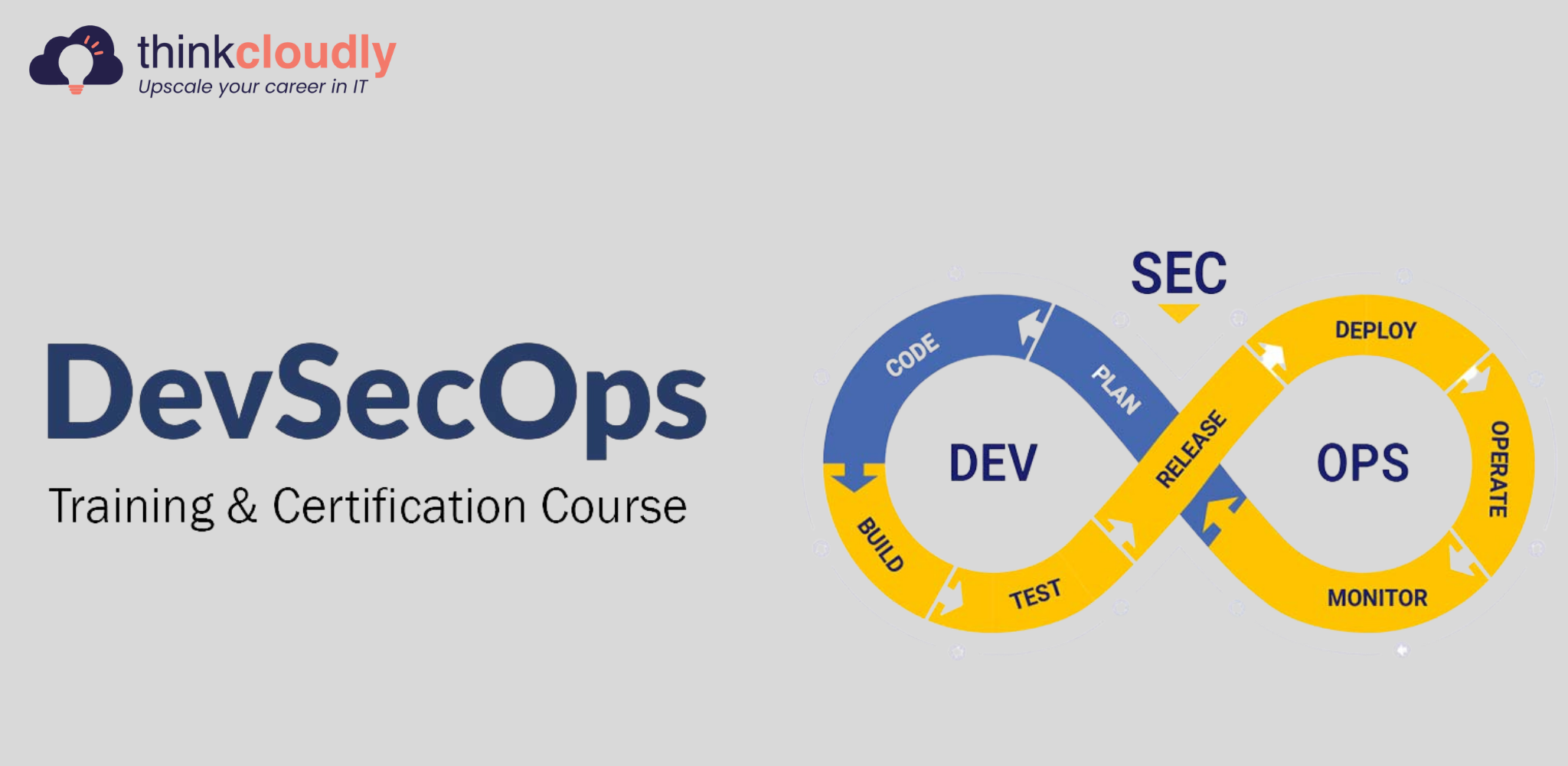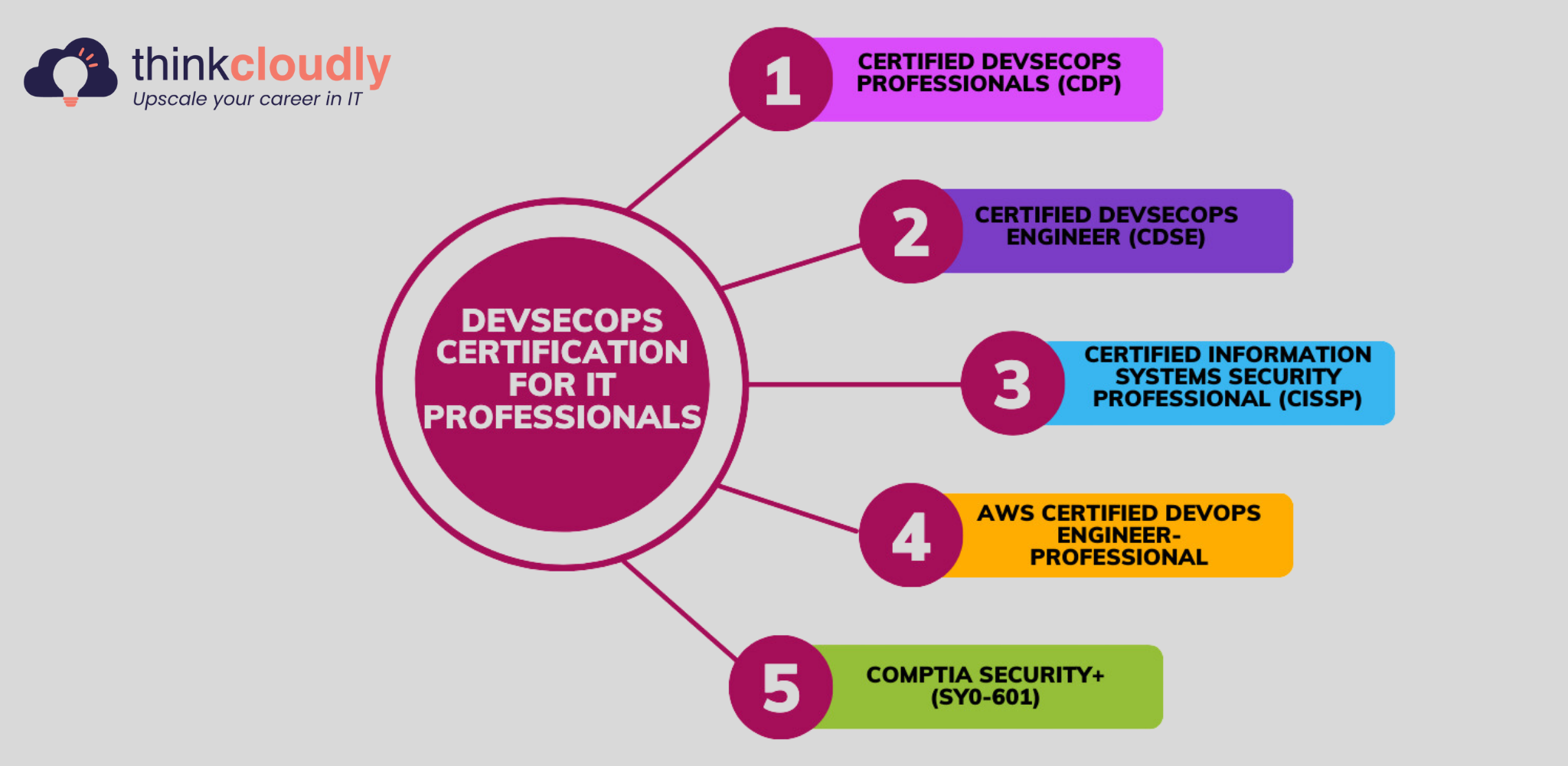Introduction
In the fast-paced landscape of IT, where security threats evolve continuously, the integration of security into the development and operations processes is imperative. DevSecOps, a practice which emphasises security from the outlet of the software development lifecycle, has gained prominence. In this blog, we dive into the reasons why IT professionals should consider DevSecOps training and certification programs. From understanding the DevSecOps process and lifecycle to highlighting the importance of security in the development pipeline, this guide aims to illuminate the benefits of acquiring the best DevSecOps certification for IT professionals seeking to enhance their skills and fortify organisations against evolving cybersecurity challenges.
 The DevSecOps Process and Lifecycle:
The DevSecOps Process and Lifecycle:
DevSecOps, an evolution of the DevOps methodology, integrates security practices seamlessly into the software development processes. The key components of the DevSecOps process include:
1. Collaboration:
- DevOps Focus: Collaboration between development and operations teams.
- DevSecOps Integration: Inclusion of security teams, fostering a tripartite collaboration.
2. Continuous Integration and Continuous Deployment (CI/CD):
- DevOps Focus: Automation of code integration and deployment processes.
- DevSecOps Integration: Infusion of security checks at every stage of the CI/CD pipeline.
3. Automation:
- DevOps Focus: Automation of development and operational tasks.
- DevSecOps Integration: Integration of security automation tools for vulnerability scanning and compliance checks.
4. Shift-Left Security:
- DevOps Focus: Automation of development and operational tasks.
- DevSecOps Integration: Identifying and addressing security issues as early as possible in the development lifecycle.
Importance of DevSecOps Security:
1. Proactive Threat Mitigation:
- DevSecOps Impact: Identifying and mitigating security threats proactively during development.
- Benefit: Reduces the likelihood of security vulnerabilities making it into the production environment.
2. Faster Incident Response:
- DevSecOps Impact: Integration of security into the CI/CD pipeline allows for rapid response to security incidents.
- Benefits: Minimises the impact of security breaches by facilitating swift remediation.
3. Compliance and Regulatory Alignment:
- DevSecOps Impact: Ensures that security practices align with compliance requirements.
- Benefit: Mitigates the risk of non-compliance, avoiding potential legal and financial repercussions.
4. Cultural Shift Towards Security:
- DevSecOps Impact: Embedding a security-conscious culture within the organisation.
- Benefit: Fosters a collective responsibility for security across all teams.
Best DevSecOps Certification for IT Professionals:
1. Certified DevSecOps Professionals (CDP):
- Key features: Covers the entire DevSecOps lifecycle, from planning to monitoring.
- Benefits: Validates skills in integrating security into development processes and understanding security automation.
2. Certified DevSecOps Engineer (CDSE):
- Key features: Focuses on security practices within DevOps workflows.
- Benefits: Demonstrates expertise in implementing security measures across the software lifecycle.
3. Certified Information Systems Security Professional (CISSP):
- Key features: Covers a broad spectrum of information security topics, including application security.
- Benefits: Provides a strong foundation in security principles, valuable for those involved in DevSecOps.
4. AWS Certified DevOps Engineer- Professional:
- Key features: Emphasises security practices in AWS cloud environments.
- Benefits: Validates skills in designing and implementing secure DevOps practices on the AWS platform.
5. CompTIA Security+ (SY0-601):
- Key features: Covers foundational security concepts applicable to DevSecOps.
- Benefits: Serves as an entry-level certification for IT professionals seeking to understand security fundamentals.
Advantages of DevSecOps Training and Certification:
1. Skill Enhancement:
- DevSecOps Training Impact: Equips IT professionals with the skills needed to integrate security into the development process.
- Certification Benefit: Validates proficiency, enhancing professional credibility.
2. Career Advancement:
- DevSecOps Training Impact: Positions IT professionals as security-savvy contributors.
- Certification Benefit: Opens doors to advanced roles and responsibilities within the organisation.
3. Organisational Security Posture:
- DevSecOps Training Impact: Enhances an organisation’s overall security posture.
- Certification Benefit: Demonstrates a commitment to implementing industry best practices.
4. Adaptability to Evolving Threats:
- DevSecOps Training Impact: Keeps IT professionals updated on the latest security threats and mitigation techniques.
- Certification Benefit: Validates a proactive approach to staying abreast of cybersecurity trends.
5. Cross-Functional Collaboration:
- DevSecOps Training Impact: Promotes collaboration between development, operations, and security teams.
- Certification Benefit: Establishes a common understanding of security principles among diverse teams
Conclusion
In an era where digital transformation and cybersecurity threats go hand in hand, the adoption of DevSecOps practices becomes a strategic imperative for IT professionals. DevSecOps training and certification programs offer a structured pathway to understanding the integration of security into the development lifecycle. By emphasising the importance of security from the outset, IT professionals can fortify their organisations against evolving threats. Choosing the right DevSecOps certification aligns with the commitment to continuous learning and positions individuals as key contributors to the resilient and secure future of IT operations.













No comment yet, add your voice below!